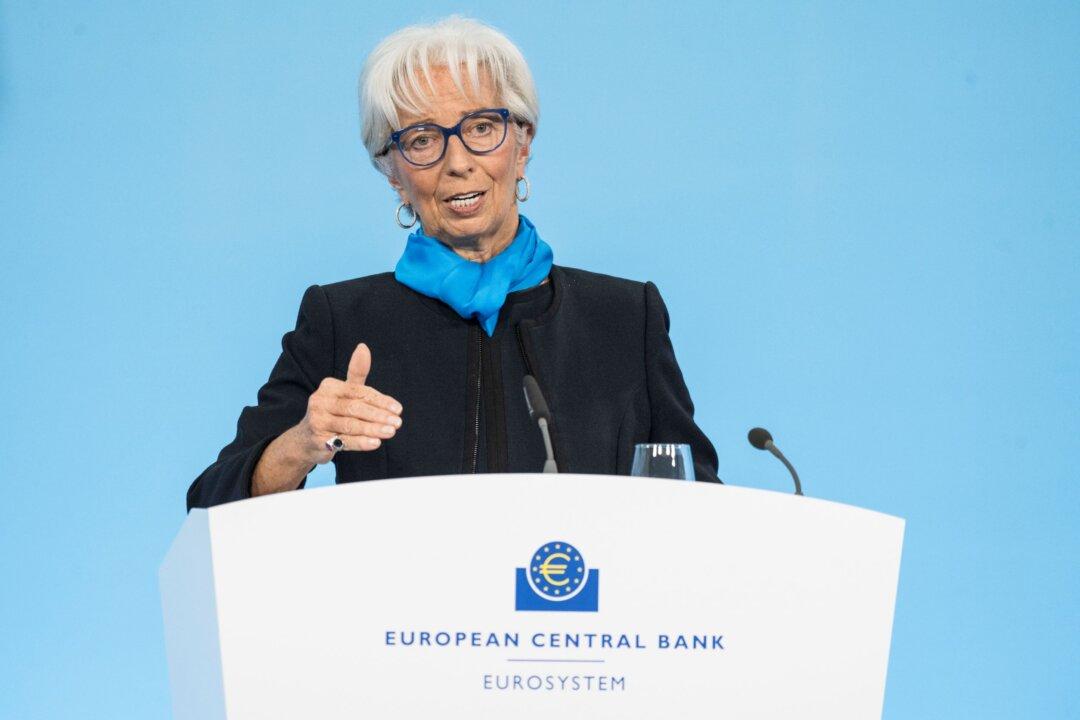The European Central Bank (ECB) will probably begin raising interest rates in July and exit negative territory by the end of September, said ECB President Christine Lagarde in her May 23 blog post.
She said the bank could raise rates further to a neutral level if it sees inflation stabilizing at 2 percent.





